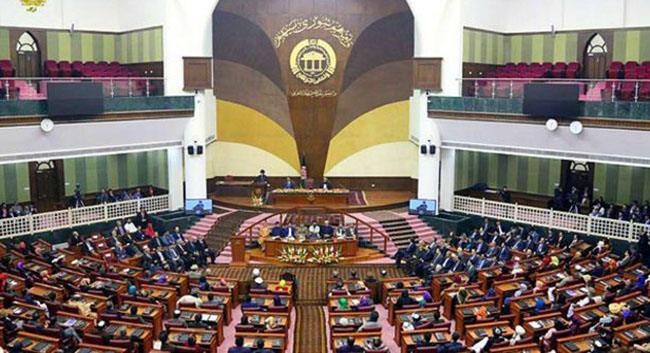According to international conventions to which Afghanistan is a signatory and according to Article 50 of the Afghan Constitution, “Right to Know” or “Right of Access to Information” is a fundamental human right for every Afghan citizen. Playing an important role in the fight against corruption, the right to access information increases transparency, accountability, public participation, democracy development and paves the way for journalists prepare investigative reports that inform the public. The limited access to information by citizens is an obstacle in fighting corruption and increase transparency and accountability. Access to information encourages citizen participation, ensures good governance, social inclusion, promotes free media and improves the efficiency of public institutions.
The law will not only apply to state institutions at national, provincial and district levels, but also to non-state actors that exploit natural resources and that receive public funds or benefits and that carry out public functions, including the provision of public services. The Act will therefore allow citizens to influence policies beyond that of the state: they will be able to have a voice in the aid processes and the decisions surrounding the exploitation of natural resources. Citizens will be able to know essential information about the provision of public services, such as land distribution and its criteria, timeframe for issuing passports or identity cards, school construction costs and electricity distribution. Most importantly, the law will empower the poor; Studies and surveys show that corruption and lack of accountability affect the poor the most. Access to information will allow poor citizens to have a chance to regain ground in their struggle for a just existence. Moreover, right of access to information is considered as a need for the protection of values like democracy, freedom of expression and freedom of speech. Journalists in Afghanistan are however faced with a lot of problems in accessing information.
However, the sole legislation does not guarantee expected results - an independent mechanism required to address public complaints and take action against those limiting public access to information for the sake of fishing in. The Oversight Commission on Access to Information complains that the ground has not been paved for the implementation of law of the access to information. The commission says that government did not allocate adequate budget to the commission. The lack of financial and technical facilities from government side is the reasons that the commission is being belittled and the commission is faced with lots of problems. So paying serious attention to paving the ground for the implementation of the laws will show the real will of government towards approved law. In addition, a number of lawmakers believe that the access to information law still has some problems. For example article 15 of the law states that giving information is prohibited if it puts someone's life, property, pride or dignity at risk. The experts believe that words like pride and dignity should not be included. Because they are not legal terms; they are the escaping way from law and opening door for misuses. “I will definitely lose my pride, if my daughter knows that her father is taking bribe," member of Wolesi Jirga Ramazan Bashardost said.
Anyway, with approval of access to information law, Afghanistan has entered the list of countries that recognize right to Information of its citizens as a fundamental human right. In modern times, the United States was the first country to adopt the Freedom of Information Act, in 1966, granting its citizens the right to information held by federal government agencies. The full law with amendments came into effect in 1974. In the decades that followed other countries adopted similar laws awarding their citizens of similar rights. The first countries that followed the example of the United States and adopted such laws were developed countries with stable democracies. However, in the last few decades, a number of developing countries have passed similar laws and the number of countries with access to information legislation has increased significantly. By 2008 more than 70 countries, including China, Jordan and Turkey had specific legal provisions governing the right or access to information by the public.
Given the experience of modern countries the following can be proposed for better implementation of this law in Afghanistan: (1) An awareness raising campaign is needed to be initiated by the government and civil society (2) Organizations on the Access to Information Law and its benefits for the public and state interests. (3) Particular attention need to be paid to awareness raising among the illiterate and particularly in rural / remote areas. (4) Incorporate awareness of the right / access to information legislation in education curricula from primary to post-secondary education as well as in literacy programs. (5) As much as possible, set up specific, clearly identifiable information points or sections in governmental organizations with the main task of assisting the public in its requests for information. (6) Ensure that government and semi-government entities have specific provisions for access to information by the public in their strategies, as a specific policy, or a clear section in the communication policy (7) Formalize the citizens’ right to approach public and state-related officials and entities for information Without having a ministerial authorization letter, the current precondition for release of information by all government, semi-government, and some non-government organizations and entities. (8) Make innovative uses of digital technology such use of mobile or smart phones and hotlines to encourage the public to exercise its right. (9) Train government and semi-government officials of their responsibilities, rights, and the consequences of failing to operate according to the obligations set out in the Access to Information Law. (10) In future reforms of the Access to Information Law, attempts should be made to define the boundaries of the law more precisely on what constitutes national interest or personal freedom in the context of access to information.
Home » Opinion » Great Step Towards Democracy Development in Afghanistan
Great Step Towards Democracy Development in Afghanistan
| Mohammad Zahir Akbari

